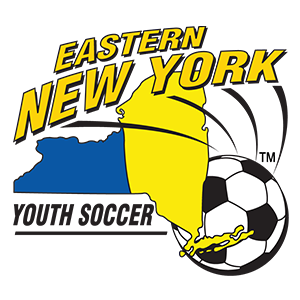By Tim Bradbury, Director of Coaching Instruction, Eastern New York Youth Soccer Association

It is impossible not to get dragged into the debate about professional coaches and pay-for-play discussions in the youth game. Having taught a variety of courses this summer and with a number left to still teach, I can share it is a hot topic for all. It is also a hot topic for club, league leaders and board members in all organizations around the country who see a decline in volunteerism and a profession with mixed standards and agendas.
To try and clear a path through the confusion, I think we can agree on certain things, after all this is America.
1. Every parent who can afford to and wishes to should be able to have a “professional” coach teach their child.
2. No kid should be left behind, and should the family wish to have access to a professional coach, it is the place of the governing bodies, leagues, tournament groups to ensure that this happens.
3. Soccer coaching is a profession. (It takes years and years to gain the necessary qualifications required to be a top-level coach.)
4. In many ways, standards within the profession hurt the reputation and respect that “teaching deserves”
5. That the single most important factor in a player developmental projectory is the quality of the coach placed in front of them.
Let’s examine the points above in a little detail
1. Every parent who can afford to and wishes to should be able to have a “professional” coach teach their child.
This is America and the land of the free – it should be every parent's right to have what they consider to be an educated coach teach their child. Part of this process should include information on helping parents make an advised decision.
2. No kid should be left behind, and should they wish to have access to a professional coach it is the place of the governing bodies, leagues, tournament groups to ensure that this happens.
During an election year, the topic of pay-for-play has quite rightly taken the foreground. Soccer historically has been the game of the people, often a working-class escape route and in more impoverished countries a chance to change the stars. In a country where many leagues, states, national groups and tournament groups are in a strong financial place, much more could and should be done to ensure that all players who want access to a professional coach get it.
3. Soccer coaching is a profession. (It takes years and years to gain the necessary qualifications required to be a top-level coach)
It has taken me as much time to become a professional coach as it did to earn a teaching degree. In fact, if I add up the accumulated hours on United Soccer Coaches diplomas and US Soccer Courses plus US Youth Soccer Courses, it has taken longer to become a fully educated coach than it took to become a teacher. Like many professions, we struggle to control the standards within our industry and far too frequently support ideas. Example, practice in conditions which do not support player development (weather) and tournaments rather than stand our ground and educate all as to why at certain times rest is more beneficial than more play. The profession needs to agree to a set of industry standards, seals of approval etc. along with an informational campaign designed to help parents understand what a professional coach is.
4. In many ways, standards within the profession hurt the reputation and respect that “teaching deserves”
Too many impostors who once kicked a ball or watched a game in Europe or played college soccer now posture themselves as a professional coach. Yet I am told there are cowboys and carpet baggers in every trade. We need more coaches who are willing to stand up and talk about professional learning communities and who strive to protect the profession than we need people looking to make some quick cash.
5. That the single most important factor in a player developmental projectory is the quality of the coach placed in front of them.
Yes, the environment helps and the players participating around you are important as well but without a quality coach to lead the process, no player fulfills his/her potential.
Professional coaches exist within every sport and are a vital part of youth development. To suggest they should cease to exist will not cure the problems with youth soccer.

